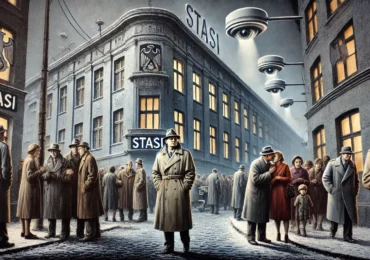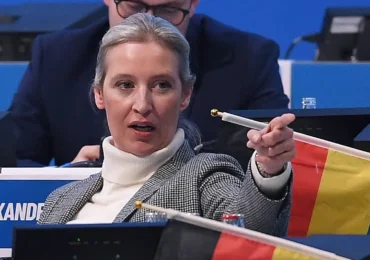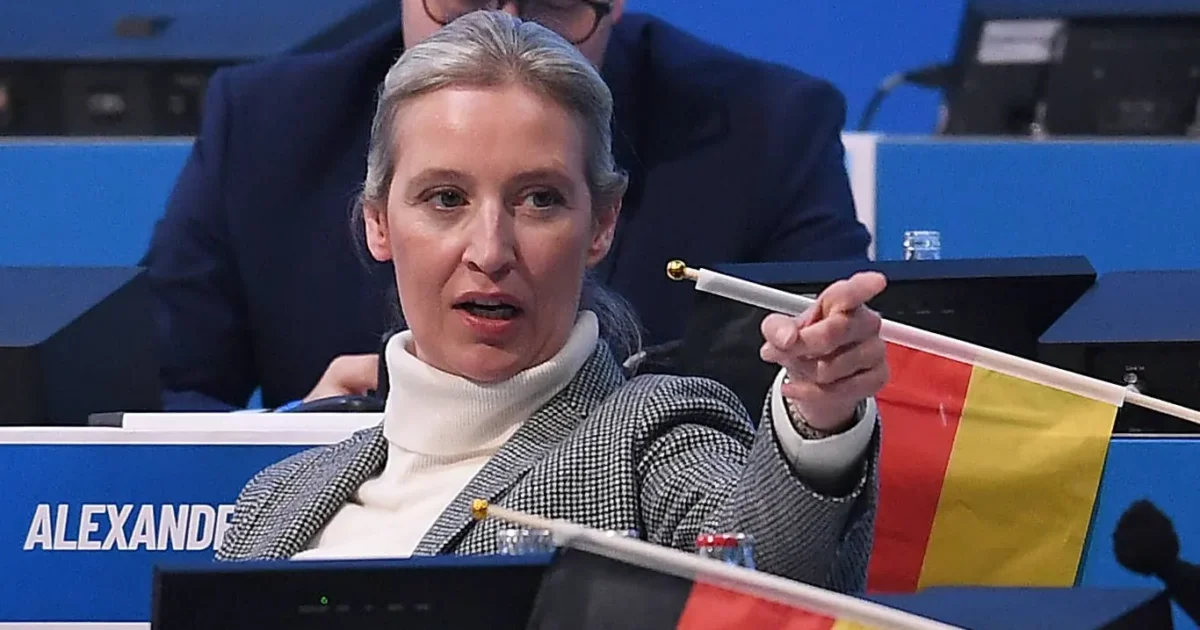In an alarming turn of events, the European Union has quietly begun the first steps toward a future where your freedom could depend on your vaccination status. The rollout of a digital vaccination card, already underway in five EU countries, signals a dangerous expansion of technocratic control over citizens’ lives. This new initiative, led by the body known as European Vaccination Beyond Covid (EUVABECO), is responsible for linking individuals’ vaccination records to their personal identification numbers—without their explicit consent. What was once a matter of public health has now transformed into an unprecedented invasion of privacy.
According to lawyer Meike Terhorst, who recently spoke with Blckbx, the gravity of this development is going largely unnoticed. “There is no real discussion about this,” she emphasized. What is unfolding isn’t just a health initiative—it’s a far-reaching data grab that could allow the EU to exert a level of control over its population that would have been inconceivable just a few years ago.
A Future Where Travel Hinges on Compliance
Imagine waking up to find that your ability to travel or even participate in daily life hinges on whether your vaccination records are “up-to-date.” That dystopian future is no longer just a speculative possibility—it’s already in motion. Under the European vaccination card system, a citizen’s ability to move freely across borders may soon be tied directly to their vaccination status. Those who fail to comply could find themselves grounded and unable to travel.
“It’s all in the 2018 roadmap from the European Commission,” Terhorst revealed. Even before the COVID-19 pandemic, the EU had already laid out a blueprint for a vaccination card or passport for all citizens. The pandemic merely accelerated the deployment of this invasive infrastructure, pushing a plan long in the works. By 2026, this digital vaccination passport is expected to be fully operational across all EU member states.
In fact, “In 2018, there was the Roadmap to Vaccination Passport. It was started by the European Commission… So it’s been prepared for a long time,” Terhorst added. This shows that what is happening today was not a spontaneous public health decision but a long-term plan put into action, only accelerated by the pandemic.
The EU’s Quiet Power Grab
For years, the EU has used public health as a means to increase its control, but the implementation of this vaccination card marks a dramatic escalation. Pilot programs have already been launched in Latvia, Greece, Belgium, Germany, and Portugal—without any meaningful public consultation about their broader implications. The most troubling aspect is the direct link between citizens’ medical records and their personal identification numbers—an authoritarian move thinly veiled as administrative efficiency.
“Without the consent of the people involved, a link is made between vaccination data and personal numbers,” Terhorst warned. This not only constitutes a serious invasion of privacy but represents a full-scale assault on individual freedoms. Meanwhile, most of the public remains in the dark about how their sensitive data is being manipulated.
The European Union is effectively building a vast digital infrastructure that funnels personal data into a system operating outside legal boundaries. Terhorst emphasized that the EU has transferred enormous power to public health bodies, bypassing the fundamental rights of its citizens. “They are doing things that are not legally possible at all,” she remarked ominously. This power shift sets a dangerous precedent, where personal data far beyond vaccination records could be centralized and controlled by unelected authorities.
The WHO’s Global Expansion of Control
Even more troubling is the global reach of this system. The World Health Organization (WHO) has eagerly adopted the EU’s technological framework, turning the European digital COVID certificate into a global standard. “The WHO is proud today to launch the Global Digital Health Certification Network… The EU’s digital infrastructure has been handed over to the WHO, allowing for a seamless integration of medical data across borders,“ Terhorst explained. The vaccination card is no longer a regional issue—it’s becoming a global tool of control.
“The QR code technology has been taken over by the WHO, and 80 countries are connected to it,” added Terhorst. This expansion means that the technology behind the vaccination certificate is designed to be non-falsifiable and impossible to evade, locking individuals into a global surveillance network.
“If you’re not vaccinated, you may be locked out of basic freedoms like travel or access to public spaces,” Terhorst emphasized. This is not about health—it’s about creating a global system of oversight where unelected bodies like the WHO hold immense power over individuals. The global network of control is already in place, and the public is losing its ability to resist.
The Threat to Sovereignty and Individual Rights
The EU has also passed laws that give public health bodies unprecedented control over citizens. “All EU member states have passed laws to ensure that sovereignty over these matters has been surrendered to public health law,” Terhorst explained. This means that in future health crises, European ministers will have the power to impose vaccination mandates without public consent.
Worse yet, the next step involves transferring sovereignty to unelected global bodies. “With the next change in the law, part of that sovereignty is transferred to the WHO,” Terhorst revealed. This poses serious questions about democratic oversight and the dangers of centralizing control in a global institution that operates outside national borders.
This trajectory stands in stark contrast to the European Charter of Fundamental Rights, which grants citizens the right to refuse medical interventions, including vaccinations. Yet the EU is forging ahead, effectively stripping people of their rights by linking vaccination status to mobility and public participation.
A Future of Unchecked Surveillance and Control
The implications of the digital vaccination card go far beyond merely ensuring people are vaccinated. “It’s not just about controlling vaccinations; it’s about integrating personal data into a system that cannot be falsified or copied,” Terhorst warned. Initially used for health purposes, this system could easily expand to encompass financial transactions or even social behavior, creating a vast network of surveillance and control over individual lives.
“The minister has been given far-reaching powers during crises and pandemics,” Terhorst explained. The concentration of such power under the guise of public health sets a dangerous precedent. This is no longer about safeguarding health—it’s about determining who can participate in society and how.
By 2026, every EU country could be operating under this regime of digital vaccination passports, and the consequences are dire. “They are doing things that are not legally possible at all,” Terhorst ominously remarked.
Will Citizens Wake Up Before It’s Too Late?
As the pilot program marches forward, it’s becoming increasingly clear that this is not about health—it’s a coordinated effort to centralize control over medical, personal, and possibly financial data. “More and more people see that this isn’t a good development… I hope more people will see the combination of digital ID and vaccination passport,” Terhorst concluded. The question is no longer whether citizens will lose their freedoms but how much longer they will remain unaware of what’s being taken from them.














And they will say….. For thee…. Not for me….